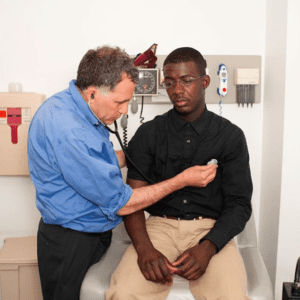Ben Wagner
Bellevue/NYU Program for Survivors of Torture (PSOT)
New York, USA
My name is Ben Wagner, and I’m a third-year BA-MPH dual-degree candidate at Gallatin and the College of Global Public Health, studying global health and human rights on the pre-med track. My focus this summer is the intersectionality of health and human rights as it relates to immigrants detained in the US civil detention system.
Over the past two years, working as an administrative assistant with the Bellevue/NYU Program for Survivors of Torture (PSOT) in New York City, I have been introduced to both victims of human rights abuse and those who care for them. PSOT has made it evident that healthcare professionals can have a critical role in promoting and protecting human rights.

Recently arrived refugees are often unaware of PSOT. They typically enter through the emergency room, only to be referred to PSOT during intake. Dr. Allen S. Keller, director of PSOT and the NYU School of Medicine Center for Health and Human Rights, wrote in a recent article about a client who was tortured and beaten for speaking out against his government and who then fled to New York. After being granted asylum due to a medical affidavit submitted by PSOT, the client said, “You have given me back my life.” Saving lives is every doctor’s goal, yet few physicians work to eradicate torture and other human rights abuses.

Prevention, a core function of modern medicine, routinely includes education, documentation, identification, and treatment. Applied to human rights issues, education in the form of advocacy advances legislative action to outlaw torture. Documenting human rights abuses exposes the systems and agencies that allow abuse to occur. Identifying and treating victims of human rights abuse within a medical framework transforms politics into healthcare, allowing for radical reassessment of best practices.
More than 400,000 people from around the world are locked up as prisoners, often without any pending criminal charges, in the US civil detention system. Physical and sexual assault, which occurs both by detainees and the guards protecting them, is exacerbated by overcrowding and is significantly under-reported. Often fleeing from traumatic abuse in their own countries, detainees are re-traumatized by the civil detention system.
Not fundamentally different from PSOT’s clients, immigrant civil detainees deserve the same medical attention. Documenting human rights abuse within the civil detention population provides an evidence-based foundation to forcefully advocate for better treatment of detainees. And if even a single detainee can say, “I have gotten my life back,” all of medicine and human rights will have advanced.